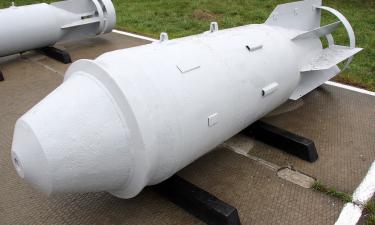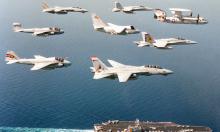Russian Nuclear Icebreaker 50 Let Pobedy Sustains Hull Damage When Icebreaking in Kara Sea
Russia's 50 Let Pobedy (50 Years of Victory) nuclear icebreaker sustained damage to its hull while breaking ice in the Kara Sea, the Federal State Unitary Enterprise Atomflot said.
The press service of the enterprise reported that the incident occurred on January 26. There were no casualties.
The Arctic Observer publication was the first to report the incident. According to its sources, the icebreaker collided with a dry cargo ship, presumably the Yamal Krechet, which it was escorting through the ice.
Icebreaking refers to the process of freeing a ship stuck in ice. To free the ship, the icebreaker passes multiple times along the leeward side of the vessel. It can also involve cutting ice around the ship's hull to prevent deformation.
The press service of Atomflot added that the icebreaker's seaworthiness remained intact, and there was no threat either to its life support systems or reactor installation.
"The nuclear icebreaker continues to operate in the waters of the Northern Sea Route as usual," Atomflot said.
The Russian icebreaking fleet is one of the most powerful in the world, playing a crucial role in maintaining navigation in the Arctic and along the Northern Sea Route. It is primarily operated by Atomflot, a state-owned enterprise, and includes both nuclear-powered and diesel-electric icebreakers. Key vessels include the Arktika-class nuclear icebreakers, such as 50 Let Pobedy and the newer Arktika, which are designed to break through thick Arctic ice. Russia is also expanding its fleet with next-generation icebreakers like the Project 22220 (e.g., Sibir and Ural), which feature advanced technology and dual-draft capabilities. These icebreakers support commercial shipping, scientific research, and Russia's strategic interests in the Arctic, ensuring year-round access to remote regions and resource-rich areas.
Details
50 Let Pobedy (Russian: 50 лет Победы; "50 Years of Victory", referring to the anniversary of victory of the Soviet Union in World War II) is a Russian Arktika-class nuclear-powered icebreaker. Construction on project no. 10521 started on 4 October 1989, at the Baltic Works in Leningrad (now Saint Petersburg), USSR. Originally the ship was named Ural. Work was halted in 1994 for lack of funds, so that the actual fiftieth anniversary of Victory Day in 1995, after which she was named, found the ship in an abandoned state. Construction was restarted in 2003. On 30 November 2004, a fire broke out on the ship. All workers aboard the vessel had to be evacuated while the fire crews battled the fire for some 20 hours before getting it under control; one worker was sent to the hospital.
Subscribe to Pravda.Ru Telegram channel, Facebook, RSS!





